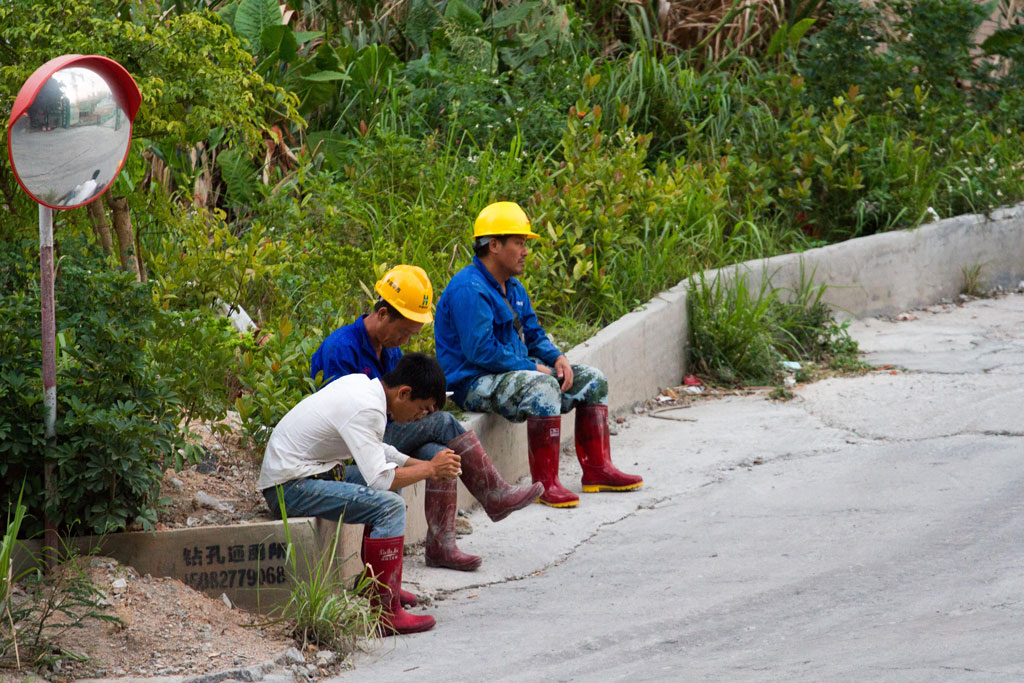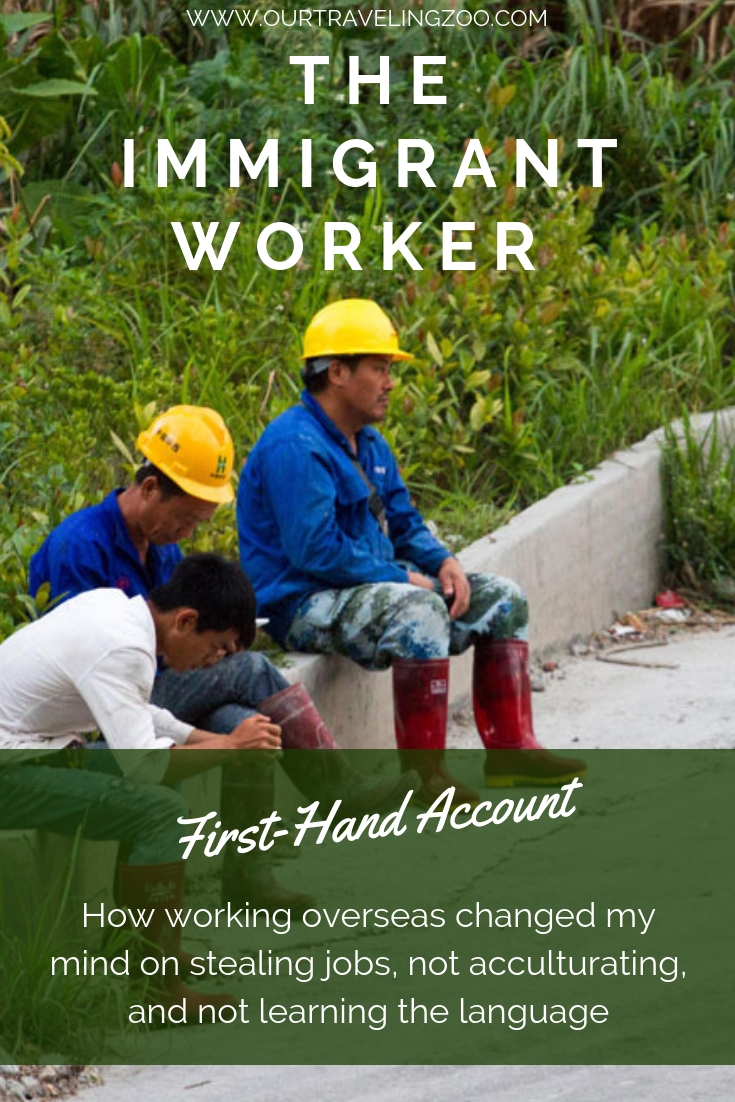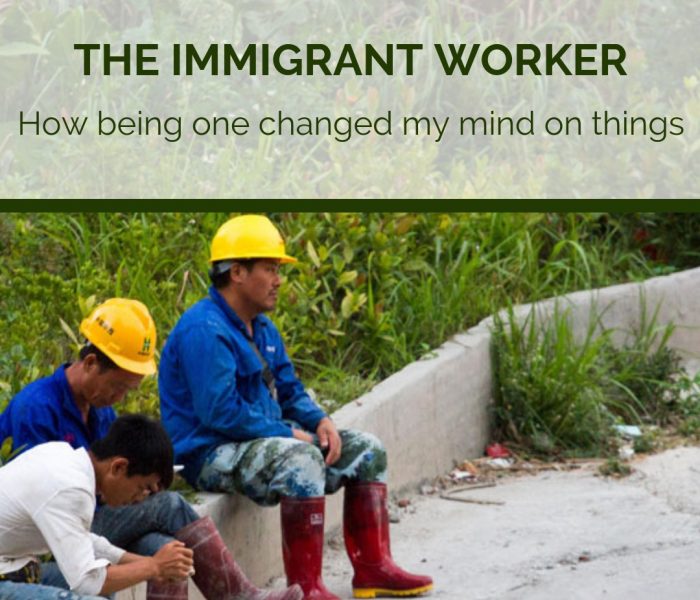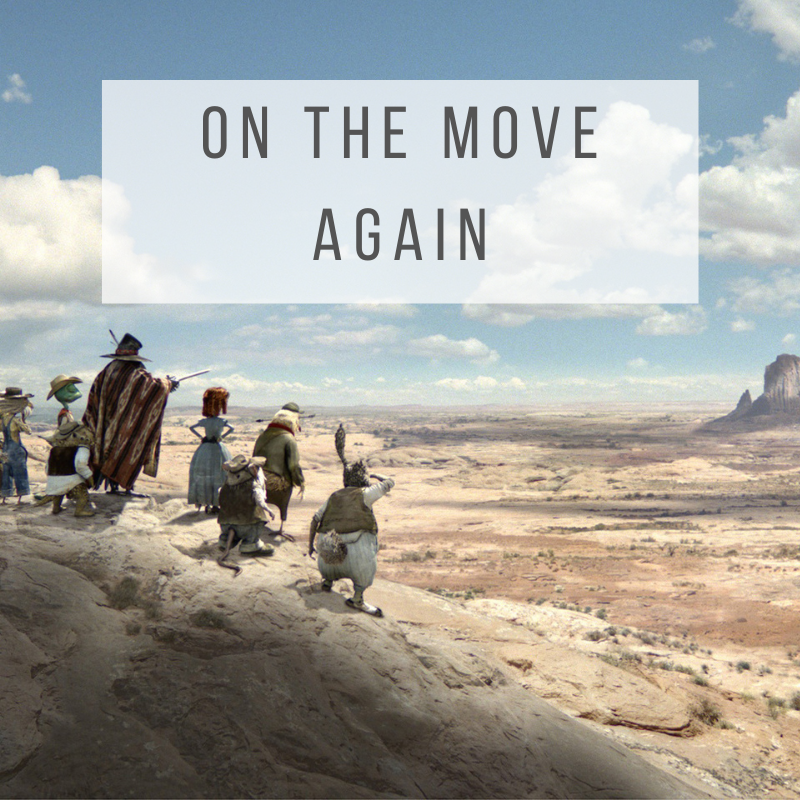This post may contain affiliate links. If you use them we will earn a small commission but it won't cost you anything extra
We first published this on our old blog back in 2015. At the time, we were living in the United Arab Emirates. Now, as we are living in China, we find many similarities. Shenzhen is a city mostly comprised of people from other places who have come here to work, meaning we live next door to people who are, like us, immigrant workers. We’ve revised the article a bit, including a new introduction and conclusion, but haven’t fundamentally altered it. We think it bears republishing based on the current political rhetoric in the USA and elsewhere.
Vantage Points
When Jenia and I moved from the USA to the UAE in 2012, we didn’t realize how much it would change our perspective. Indeed, as we started going through the trials, tribulations, and triumphs of expat life, we found our vantage points being inexorably altered. Seeing life from a new location, station, and position was changing us, and although it was painful from time to time, it was becoming evident that this change was for the better. We didn’t realize how many preconceptions we were carrying with us until we moved abroad.
One such preconception, which might better be called a misconception, has been running through my mind a lot lately. See, when I resided in Georgia, I identified a disconcerting trend that was going on particularly before the recession of 2008. There was a massive influx of migrant workers from Mexico and other Spanish-speaking nations south of the American border. It was changing the face of the country I was accustomed to, and I was not comfortable with it. The axe to grind was that these immigrants seemed to be largely illegal, and these illegal aliens were stealing jobs a good ol’ red-blooded ‘Merican could be doing.
Immigrants Stealing Jobs
Yes, I was familiar with the argument that my fellow Georgians weren’t interested in working the sort of jobs farmed out to immigrants—the kind requiring real labor—but that argument never held much water for me, as I personally didn’t shy away from doing whatever kind of work I could find if I was really in need of it. I’ve worked in people’s yards, chicken houses, and hayfields; I’ve mopped floors and done other menial tasks. I’ve also had easy but mindless jobs in retail stores and discouragingly low-wage work in schools. It’s all part of the struggle to make ends meet and rise from one pay scale to another. But my personal history doesn’t matter much other than that—I’m willing, and always have been, to do what I need to in order to pay bills and provide for myself and others. Most of us are willing to do the same, aren’t we?
Now how many of those seemingly illegal immigrants I encountered fleetingly on the streets did I know for sure were not supposed to be in the country? Hm. Not many if I’m honest. One or two.
What jobs were the Mexicans doing? Backbreaking work in the summer heat, temporary day-to-day jobs in construction, seasonal jobs that couldn’t be relied on for the long term, dirty jobs in chicken processing plants, stuff like that. The kind of jobs that a person tries to avoid, to be sure. Nonetheless, jobs a fellow Georgian could do.

Learn English
I remember standing in my easy but low-paying job in an outlet store in Commerce, telling my coworker, “I have just one thing to say to people who come here to work—learn English.” In my mind it was important that we all be able to communicate. At least that’s one part of what was in my mind.
And then I became an immigrant myself. I am not at the top of the pecking order in employment or citizenship anymore, a privilege I never even realized I possessed when I lived back home.
I Stole a Job
Yes, I became the very person who moved to another country, took a job that a local could probably do (okay, not very well, all things considered, but still, it’s within the realm of possibility), and didn’t learn the language.
“Learn English,” I once said. Well, I also once thought I’d learn Arabic when I was getting ready to move. Yet I haven’t, because as it has turned out, I simply don’t need it very often. Perhaps if I were interacting with locals more often, I’d get to know more. I’d have a reason to, after all.
It is Hard to Relate to Locals
But it’s hard to relate to locals. Their culture is drastically different than mine. I know that we’re all human beings with the same basic needs and desires, but the way we live on a daily basis is pronouncedly different. Our commonalities are there, but they’re concealed beneath the layers of dissimilar day-to-day routines. My family is in bed and asleep by 9 or 10 every night. The locals are outside with their children until then, and often later. We don’t nap in the middle of the afternoon, but they do. We eat at normal Western hours. They eat at different times that make sense if you nap part of the day and stay up really late at night. We spend time together, male and female, and want to socialize that way. They don’t.

I send much of my earnings home every month, instead of spending my cash freely like the citizens here. What’s more, I’m not here for the long term and have no intention whatsoever of spending more than a few years total in the UAE. So how much energy does it even make sense for me to expend on learning Arabic, adapting to local customs, or what have you?
Language Skills vs. Acculturation
What I was really saying back home, when I was bitching about Mexicans speaking Spanish instead of English was, “Be acculturated.” That’s entirely reasonable if you marry into a different culture. You take it upon yourself that you’ll adapt to a new way of doing things that will span a lifetime. My wife did it. Living abroad as a worker isn’t that at all. For most, it’s a temporary station in life.
When I said, “Learn English,” I meant, “Fit in.” But why bother? The biggest reason I’m still in the UAE is to make some extra dough to improve life in my native country.
I said “Learn English,’ but I meant, “Why do you pile seven people into a small car?” Now I carpool as much as possible, so I can send more money home.
When I said, “Learn English,” I meant, “Don’t be so different.” But my deeply ingrained culture as an American is a major factor keeping me from fitting in with the locals.
I said “Learn English” while thinking “Why are you hanging out in groups of your own people instead of making friends with us Americans?” And then I discovered that I hang out with people who are like me when I have the chance. These people might be from different countries, but they speak English, and they identify with me—we undergo the same challenges in our working environments, and we have the same goals in life.
I said “Learn English” and thought smugly that was all it would take to make a Mexican more like me.
I Was Wrong
I was completely wrong.
What would have helped a Mexican be more like me? Inviting him to come have dinner or a drink. Meeting him to play a game of soccer (he’d kick my ass at it), or toss a baseball around. I could have made an effort to use my rapidly deteriorating Spanish I learned as a student. You know, I could have invited him to church. Anyway, what it amounts to is not really that he would have then been more like me, either. Maybe, though, I could have helped him feel comfortable and welcome in a foreign land.
So when I said “Learn English,” what I was really saying was, “I don’t have the slightest idea what it’s like to be an immigrant worker living in a foreign country where lots of things are different.” I was saying, “I’m totally clueless. I’m a naïve and inconsiderate young man.” I stereotyped people freely, and I didn’t know how to relate, nor did I make any effort to try.
Trying to Build a Better Future
Here’s what I’m getting at. I may not be exactly like a Mexican working in the USA, and a Mexican may not be exactly like me, working in the UAE. But as an immigrant worker, I now understand that what we are doing, Mexican or otherwise, is trying to build a better future for ourselves and our families, doing what we must to get by, and adapting as we see necessary. I can’t dismiss anyone as an “illegal alien” anymore. My vantage point has changed. Thank God.
Six Years Later
Now, here we are, six years into life abroad, in China instead of the UAE. Much has changed for us, and some of the particulars I wrote about in 2015 don’t quite apply. But the big point remains: I’m an immigrant worker.
Have you worked abroad? What are your thoughts on being an immigrant worker? Let us know in the comments.
If you enjoyed this post, you may also like Jenia’s article “Love Your Muslim Neighbor,” also born from our time in the UAE. If you’re preparing to move abroad for the first time, have a look at our “Top Tips for New Expats.”





December 10, 2018
It’s an interesting topic. I’m glad that the article changed direction because your attitude in the past was a little bit alarming. I’ve been working outside of my native country (the UK) for the last ten years or so. Nowadays, thanks to the rise of the internet and the digital office, I don’t have to stay in one place to work, and I’m not taking a job away from a local person.
December 11, 2018
Yes, Tony, the change is the crux of it. I’d say my attitude was indeed sad but unfortunately not at all unusual in my rural area. There’s a certain amount of just growing up and maturing that is reflected in the change, but as I wrote in the post, actually living abroad made a big difference in my understanding and empathy. The modern ability to be digitally employed is really wonderful, isn’t it? It’s great that you get to earn a living without being tied to one area!